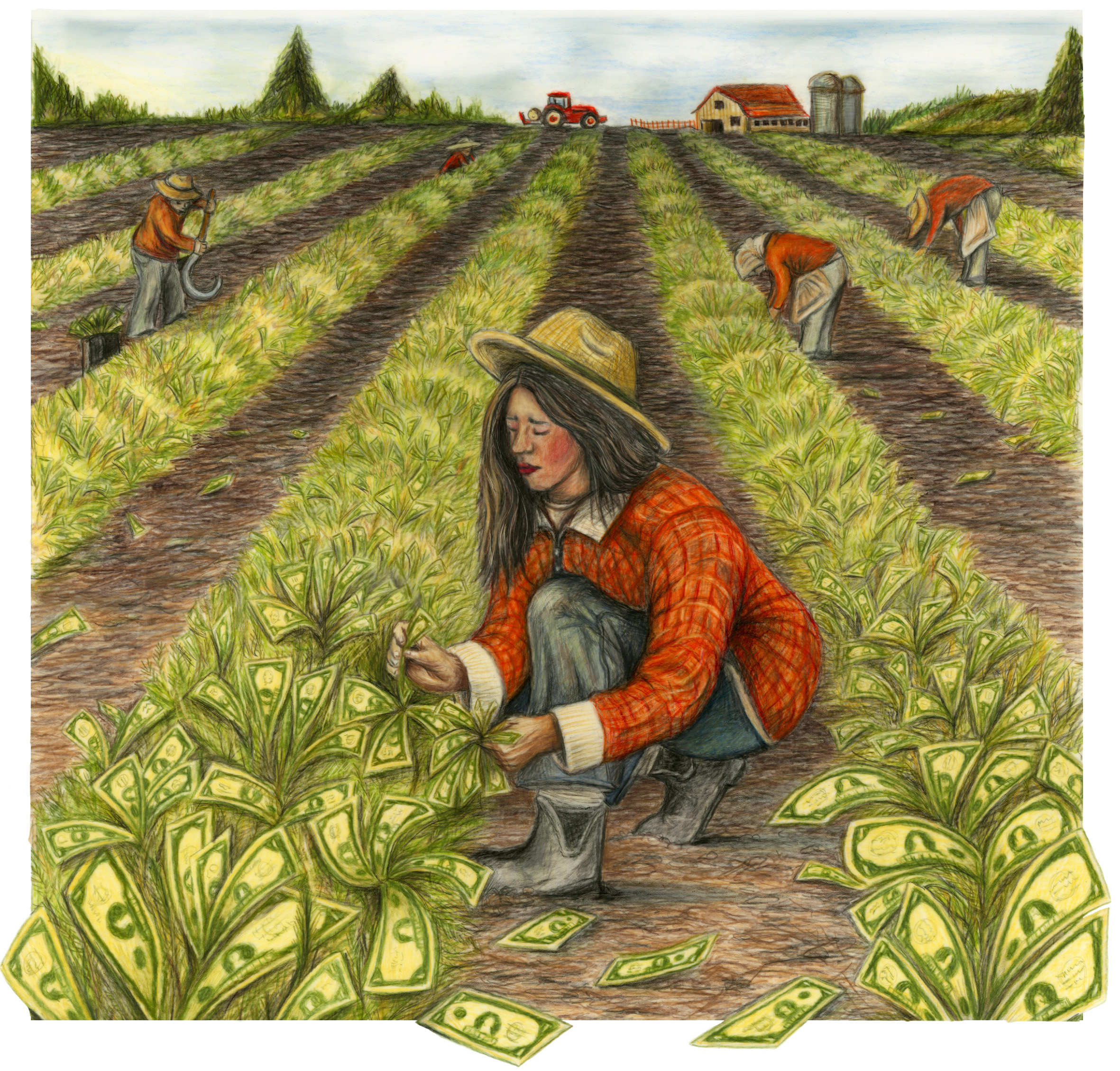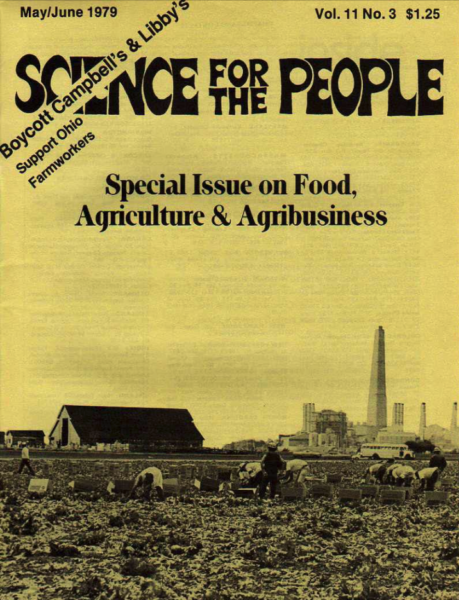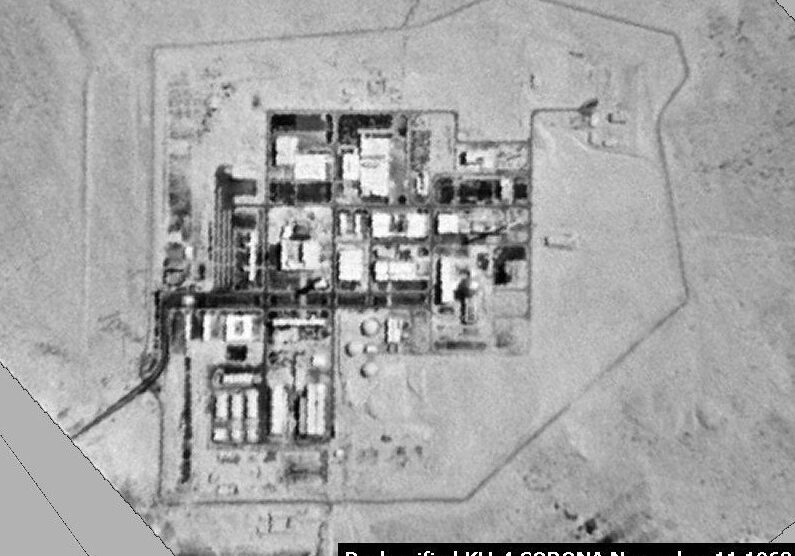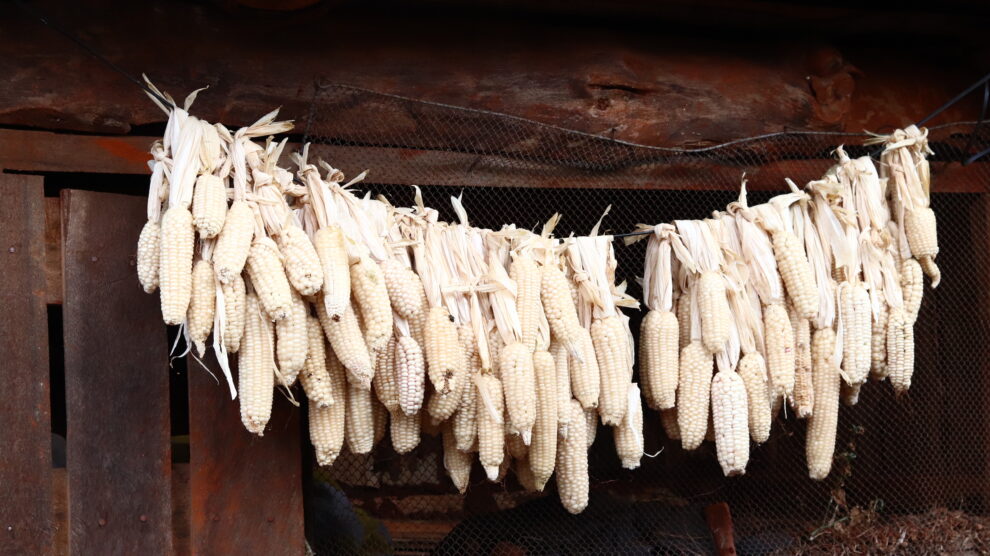Letter from the Editors
Volume 25, no. 1, The Soil and the Worker

Amongst the highly placed
It is considered low to talk about food.
The fact is: they have
Already eaten.—Bertold Brecht (1944)
To talk about food is to face with sober senses our real conditions of life. Everyone needs to eat; yet, some savor the extravagant, some struggle to put food on the table, while others starve. Consider the fact that 10 percent of the world’s population is undernourished in a time when 14 percent of food produced worldwide are burnt or buried in landfills.1
To talk about food is to face with sober senses our relations with our fellow humans. No, we are not asking everyone to “thank a farmer” for a meal. Instead, think deeper: consider the fact that half of the world’s population are small farmers and landless peasants earning at or below subsistence income, and these same people produce 70 percent of the world’s food.2
To talk about food is to compel ourselves to think about material wealth and its creation. A bountiful harvest, the cornucopia, symbolizes prosperity, not in monetary terms, but in feeding the people. Food is grown from the earth, tended by the planter’s hand. In this way, Marx named the original sources of all wealth: the soil and the worker.
To talk about wealth is to lay in contrast the reality of our current conjuncture. Capitalism has remade farming into agriculture, transforming a fundamentally productive process, in which farmers work with autochthonous biological inputs, into a commodified system dependent on external suppliers of fertilizers, pesticides, herbicides, seeds, machinery, fossil fuels, and hired labor.3 A crude reductionist mindset replaces mosaic land patterns characterized by crop rotation, crop diversity, the recycling of nutrients, and the nurturing of soil microflora, invertebrates, and pollinators, with monoculture cash crops malnourished by commercial nutrient inputs.4 This insight is central to Marx’s concept of the metabolic rift: just as the factory system under capitalism robs the worker of their energy, so the agricultural system under capitalism robs the soil of its vitality, without possibilities of replenishing and regenerating future prosperity.5
As for the fates of the people, the capitalist transformation makes necessary the enclosure of ever larger areas of land, dispossessing people all over the world of their livelihood. Where profitable crops are produced, they become industrialized workers subjected to the alien force of capital, and wherever unworthy of market speculation, they are left to their own devices to struggle to grow food for their communities in a rapidly worsening climate. Profit accumulation on the one pole, thus, requires exacerbation of hunger, war, and deprivation on the other.
 Not for the first time we invite readers to talk about food. We published a special issue in 1979 that ruminated on some of the same issues raised here.6 Some discussions are a continuation—pesticides, agribusiness, and corporate monopolies; others a transposition—plight of American dairy farmers, lessons from revolutionary China. Saliently, the accelerating globalization since the late 1970s obliges us today to put a stronger focus on the global South—where most agricultural workers of the world live and toil.
Not for the first time we invite readers to talk about food. We published a special issue in 1979 that ruminated on some of the same issues raised here.6 Some discussions are a continuation—pesticides, agribusiness, and corporate monopolies; others a transposition—plight of American dairy farmers, lessons from revolutionary China. Saliently, the accelerating globalization since the late 1970s obliges us today to put a stronger focus on the global South—where most agricultural workers of the world live and toil.
And we must not only talk. Within these pages, we witness concrete actions people are taking against the capitalist food and agricultural system: defiance against settler-colonization, sovereignty in the face of imperialist aggression, the search for freedom from racism and patriarchy, and application of agroecology for ecological restoration and resilience to climate change. No more do we seek to uplift these revolutionary voices than to actively expand the people-power needed in these struggles. So, please connect with us and join in the (food) fights!
In struggle,
The Volume 25, no. 1 Editorial Collective
We are especially grateful for all those who volunteer their time, labor, and knowledge, to make this magazine happen, and for those SftP members—of this generation and the original organization—who donated to us and ensure that we can pay our contributors. Join us by subscribing or becoming a Patreon donor. We will be posting the full contents of this issue, plus online exclusives, in the coming weeks.
Notes
- “Stop Food Loss and Waste, for the People, for the Panet,” The United Nations, accessed March 13, 2022, https://www.un.org/en/observances/end-food-waste-day.
- Henry Saragih, “Why the International Day of Peasants’ Struggles is Important,” The Guardian, April 18, 2011, https://www.theguardian.com/global-development/poverty-matters/2011/apr/18/international-day-peasants-rights-grow-food.
- Richard Levins and Richard Lewontin, “The Political Economy of Agricultural Research,” The Dialectical Biologist (Cambridge: Harvard University Press: 1985), 211.
- The Dialectical Biologist, 220–221.
- As John Bellamy Foster writes, “the inherent character of large-scale agriculture under capitalism prevents any truly rational application of the new science of soil management,” and that in spite of the advancements made in agricultural science and ecology during the nineteenth century, capitalism was “unable to maintain those conditions necessary for the recycling of the constituent elements of the soil.” See John Bellamy Foster, Marx’s Ecology (New York: Monthly Review Press, 2000), 157.
- The Editorial Collective, “About This Issue,” Science for the People 11, no. 3 (May 1979): 4.





